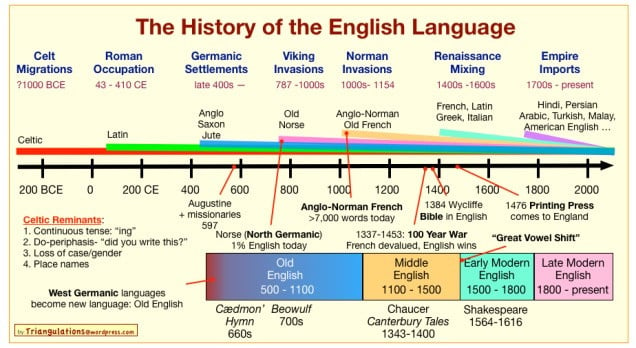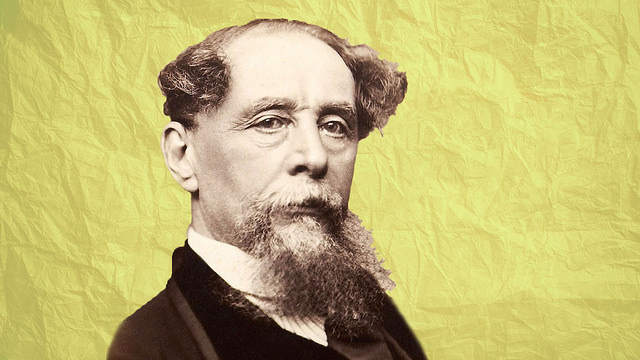Random and Quirky Facts about the English Language

Photo via Flickr
English is the original pidgin, a wonderful mishmash of other tongues, born over centuries of adding and bastardisation. It is comparatively easy to learn, easy to adapt and very easy to stagger through when stuck for words. Due to its long history, the language is full of odd facts and fun figures, some eyebrow-raising, some a bit so-so. Speaking of which, did you know that ‘so-so’ has been in popular use since 1542, the same year as ‘acrimony’, ‘cynical’ and ‘dastardly’ made their way into the dictionary? Let’s have a look at a few other dastardly facts, without too much acrimony or the raising of a cynical eyebrow along the way.
What the Dickens?

Photo via Flickr
Charles Dickens added over 250 words and phrases to the English language. Many of his characters are still in use today, describing the personality types that Boz created. A ‘Micawber’ is the eternal optimist, a ‘Fagin’ someone who organises children for crime and for Christmas lovers ‘Scrooge’ needs little explanation, nor does ‘bah humbug’ for that matter. Even the term ‘Dickensian’, which evokes images of poverty and grim, dark streets, owes its origins to his writings. ‘What the Dickens?’ however predates him and refers to an old name for the devil, possibly coined by another great writer, William Shakespeare.
Who’s in Charge Around Here?
English is the only major language that doesn’t have a governing body. This is probably due to it being a collection of other languages and one which is always adding new words, around 4,000 per annum. French, German and Spanish have academies that govern how their respective languages develop, while English is forever freely evolving. This can make English easier to learn, while also making it frustrating for a learner, as English words quite often don’t always mean what you think they do.
Oh yes, it does… Oh no, it doesn’t
Speaking of which, do you know many words have contradictory meanings? For example: did you consult a doctor? Are you being asked here if you gave the physician advice or you sought advice from them? Left can mean someone took their leave or is still present, depending on where and how you use it in a sentence. ‘Fast’ means going quickly, as in ‘I am a fast runner’ but also it can mean fixed, as in ‘the colour is fast, it won’t run’. These words are known as contranyms and reflect that English can be a language of contradictions, where rules sometimes need to be broken.
My favourite blend

Photo via Flickr
English forms new words from old ones. These days it’s usually some lazy teen squeezing letters together to show off their linguistic wizardry, but it’s been going on for centuries. Such words, known as ‘blends’, are becoming more and more popular, possibly due to texting and social media. Obvious blends are brunch: ‘breakfast and lunch’, motel: ‘motorcar and hotel’ and spork: ‘spoon and fork’, which has been in use for over 200 years. New blends such as ‘hangry’, angry because you are hungry, and ‘Brexit’ that word of political turmoil, were only added in 2015. With our hurry to do everything at once, no doubt plenty more blends are in the mix already.
And what the?
Did you know that the ampersand sign was once considered a letter? The English alphabet has 26 letters yet up to the mid-1880s, the ‘&’(ampersand), was often included as the 27th member. Probably originating from the Romans combining ‘e’ and ‘t’ as a shorthand for ‘et’, meaning ‘and’, the ‘&’ sign became a letter in its own right during the 1st century. Modern English discarded the ampersand as a letter around the 1600s, but the ‘&’ survived in many primers well into the 19th century.
There are hundreds of facts about English, and while most of them are fascinating, they also give an insight into the origin of the language. Knowing where a language comes from not only helps with learning but may build a love to last a lifetime.
Are you learning English and a bit confused at times? What words are causing you confusion?
